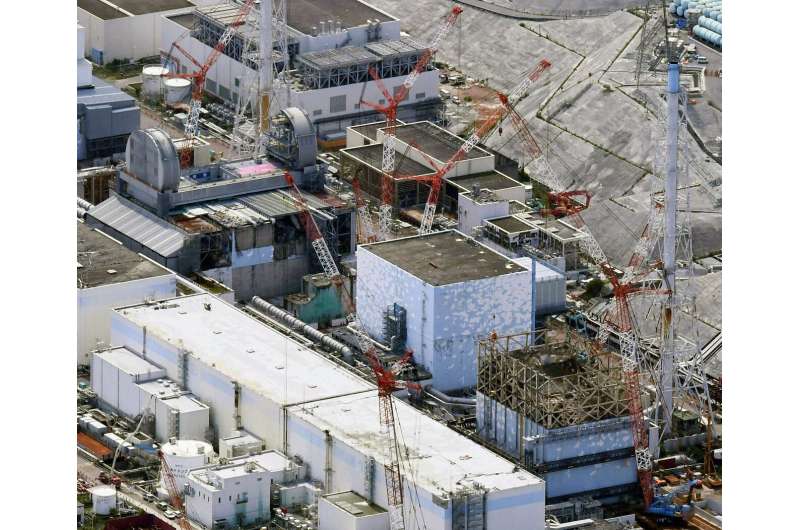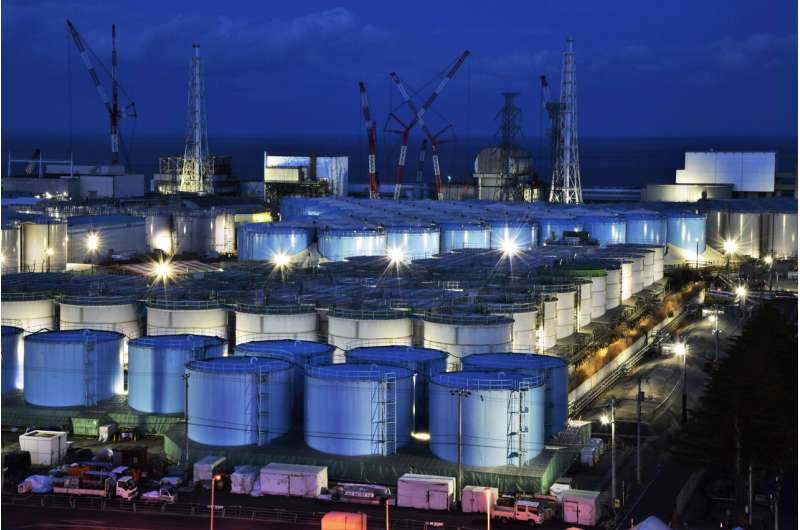Fukushima nuclear plant out of space for radioactive water

The utility company operating Fukushima's tsunami-devastated nuclear power plant said Friday it will run out of space to store massive amounts of contaminated water in three years, adding pressure on the government and the public to reach a consensus on what to do with it.
Three reactors at the Fukushima Dai-ichi plant suffered meltdowns in a massive 2011 earthquake and tsunami that devastated northeastern Japan.
Radioactive water has leaked from the damaged reactors and mixed with groundwater and rainwater at the plant. The water is treated but remains slightly radioactive and is stored in large tanks.
The plant has accumulated more than 1 million tons of water in nearly 1,000 tanks. Its operator, Tokyo Electric Power Co., says it plans to build more tanks but can accommodate only up to 1.37 million tons, which it will reach in the summer of 2022.
What to do after that is a big question.
Nearly 8 1/2 years since the accident, officials have yet to agree on what to do with the radioactive water. A government-commissioned panel has picked five alternatives, including the controlled release of the water into the Pacific Ocean, which nuclear experts, including members of the International Atomic Energy Agency, say is the only realistic option. Fishermen and residents, however, strongly oppose the proposal, saying the release would be suicide for Fukushima's fishing and agriculture.
Experts say the tanks pose flooding and radiation risks and hamper decommissioning efforts at the plant. TEPCO and government officials plan to start removing the melted fuel in 2021, and want to free up part of the complex currently occupied with tanks to build safe storage facilities for melted debris and other contaminants that will come out.

In addition to four other options including underground injection and vaporization, the panel on Friday added long-term storage as a sixth option to consider.
Several members of the panel urged TEPCO to consider securing additional land to build more tanks in case a consensus cannot be reached relatively soon.
TEPCO spokesman Junichi Matsumoto said contaminants from the decommissioning work should stay in the plant complex. He said long-term storage would gradually reduce the radiation because of its half-life, but would delay decommissioning work because the necessary facilities cannot be built until the tanks are removed.
Matsumoto declined to specify the deadline for a decision on what to do with the water, but said he hopes to see the government lead public debate.
Some experts, however, said the priority should be the feelings of the residents, not the progress of decommissioning.
"When we talk about Fukushima's reconstruction, the question is if we should prioritize the decommissioning at the expense of Fukushima people's lives," said Naoya Sekiya, a University of Tokyo professor of disaster social science. "The issue is not just about science."
© 2019 The Associated Press. All rights reserved.
















